EPFL – The best alternative to US universities
E P F L
The Buzz word RECESSION has brought down the interest in the MS aspirants for US and instilled a fear in the security of jobs there . Adding to it the US Government is trying to restrict the opportunities available for foreigners as well . Finding a recession proof solution with job security becomes a point of importance now. Wait, !!! we have to discuss about abroad educational opportunities ., not about job and its security fine ., im just going to introduce a Grad school where you get a internationally renowned degree and a wide range of job opportunities . Recession proof ? I can hardly say that , until I know what’s their business and their orientation. But are void of government interventions in opportunities.
Now coming back to the point , the location is well known and they hit the news recently in search of God Particles . Yes you got it right, it’s the Swiss and they are technologically far ahead, considering the 27km intellectual property!!!
 The Grad school of our choice is THE ECOLE POLYTECHNIQUE FEDERALE DE LAUSANNE.
The Grad school of our choice is THE ECOLE POLYTECHNIQUE FEDERALE DE LAUSANNE.
The currency used here is Swiss Francs. 1 Swiss Franc is approximately equal to 46 INR as of today. Founded in 1853 as a private school under the name École Spéciale de Lausanne, it became the technical department of the public Académie de Lausanne in 1869.
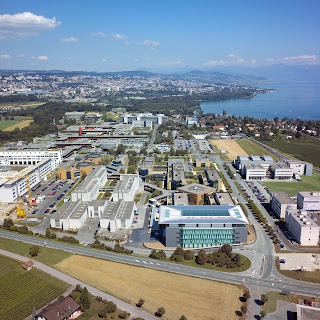
In 1946, it was renamed the École Polytechnique de l'Université de Lausanne (EPUL). In 1969, the EPUL was separated from the rest of the University of Lausanne and became a federal institute, known as the École Polytechnique Fédérale de Lausanne (EPFL) or Federal Institute of Technology, Lausanne. The EPFL is part of the Swiss Federal Institutes, together with its "sister" institute in Zurich, which are funded by the central government. Most Swiss universities are generally funded by the cantons. Lausanne's Federal Institute of Technology is the study, research and workplace of some 10,000 students, staff and professors from 107 countries.
About 245 professors teach mainly basic sciences (mathematics, physics and chemistry), engineering sciences and techniques, architecture, civil and environmental engineering, computer and communication sciences, life sciences, sociology and humanities.
The EPFL came second behind Cambridge University in Shanghai Jiao Tong University's 2007 ranking as best European study centres for engineering, technologies and computer sciences.
This Grad school like many other US grad school has research tie-ups with many prestigious companies. More recently Nokia – EPFL had a research tie-up for a new high-tech research centre. The Mobile phone giant Nokia and the federal institutes of technology in Lausanne and Zurich inaugurated a long-term research programe to "invent the services of the future".
With the arrival of the world's leading mobile phone company, which has programmes with eight universities worldwide including Cambridge University in Britain and the Massachusetts Institute of Technology (MIT) and Stanford University in the United States, the EPFL is truly entering the world's premier league.
Some quotes on that are
"We are trying to provide the right environment for companies to take advantage of the scientists and researchers based here" EPFL president Patrick Aebischer
“Nokia sees the fusing of the digital and physical worlds as a key objective in mobility. We have chosen to work with the Swiss institutes of technology because of their expertise in this area” said Dr Bob Iannucci, Nokia’s chief technology officer
The Swiss business magazine Bilan, which has an exclusive report on Nokia's involvement, said EPFL is planning to attract even more companies to an area of 42,000 square metres earmarked for new research laboratories.
Ok lets see why Nokia got attracted at EPFL The EPFL already pilots a national project called MICS (Mobile Information and Communication Systems), which specialises in network research. The department, led by professor Karl Aberer, looks at how objects in our every day lives communicate with each other and with a virtual network (a concept known as the ‘Internet of things’). And now Nokia will base its research at its new laboratory in Lausanne around how humans interact with technology, and this would involve using the "human senses".
The other companies to have research deal with the EPFL are Rolex, Nestlé, Logitech, Merck-Serono and La Poste. The accord is part of the institute's new industrial strategy adopted last year and its transformation into a global research centre.
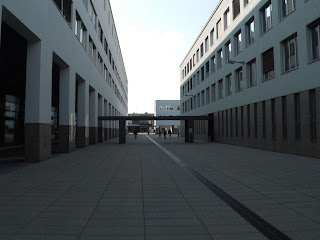
EPFL is planning to align itself with top notch universities, like MIT or Stanford where at the campus, you see people from Microsoft, Yahoo and Google , resulting in setting up of industrial research centers from renowned companies
The EPFL traditionally has a strong commitment to technology transfer. A start-up incubator, coaching services, study programmes in entrepreneurship and innovation programmes aim to stimulate links between the labs and businesses. The science park on campus is currently home to more than 100 small firms and investors.
INNOVATION QUATER
The next stage of the EPFL's business strategy involves the creation of an "innovation quarter", comprising ten ten-story buildings financed by private industry to be rented as laboratories on campus.
Three buildings have so far been completed and the institute is confident that it will fill the rest of the 42,800 square metres of floor space.
The institute was also in discussions with numerous companies from different sectors, including Thomson, Microsoft and Yahoo, which plans to move its European headquarters to Rolle, between Lausanne and Geneva.
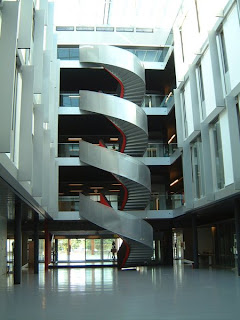
The "innovation quarter" will be situated close to the new futuristic Learning Centre library and study area, a vast undulating open space, intended to become the heart of the campus and scheduled to be ready by the end of 2009.
Accommodation for 1,000 students, a congress centre, a hotel and shops and restaurants are also planned. In all, the EPFL and its partners are investing some SFr500 million ($482 million) by 2010 to develop the campus.
What EPFL has to do with Indian students?
INDO SWISS JOINT RESEARCH PROGRAMME (ISJRP): ISJRP is a bilateral research programme financed jointly by the Swiss and Indian Governments. The programme provides funds for research projects and scientific exchanges. EPFL, the Leading House for India, with the University of Lausanne as its partner, is responsible for all operational aspects of ISJRP in Switzerland.
STUDENT EXCHANGE PROGRAMME WITH IITs AND IISc: The EPFL-IIT/IISc Exchange Programme allows EPFL students to enroll for one term or for a full academic year at one of the seven Indian Institutes of Technology (IIT) or at the Indian Institute of Science (IISc). In return, Indian students admitted at these institutes are eligible to be exchange students at EPFL. Allows EPFL and IIT students to benefit from scholarships and fee-waivers
INTERNSHIPS FOR INDIAN STUDENTS: EPFL's world-class laboratories offer diverse internship opportunities for Indian students. Internship placements are coordinated through a specific website platform providing detailed information on admission procedures and facilitating the matching of students' background and interests with the requirements of the labs looking for student assistance.
INDO SWISS COLLABORATION IN BIOTECHNOLOGY (ISCB): ISCB is a joint initiative of the Swiss Agency for Development & Cooperation (SDC) and the Indian Department for Biotechnology (DBT). The programme promotes research partnerships between Swiss and Indian scientists focusing on agricultural and environmental research.
EPFL-IIT MADRAS POSTGRADUATION COURSES: EPFL and the Indian Institute of Technology (IIT) Madras jointly established a sixteen-week post-graduate course on "Technology and Sustainable Development" which is being held on a regular basis
INDO SWISS BILATERAL RESEARCH INITIATIVE (ISBRI): ISBRI seeks to enhance the number and scope of collaborations between Swiss and Indian scientists by providing seed money for short-term visits and the exchange of students.
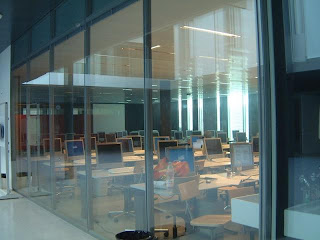
Some general Info
*** GRE and TOFEL scores are not mandatory.
SCHOLARSHIP
EPFL excellence scholarships, Swiss Government scholarships are available for foreign students
COST OF STUDIES
Tuition fees for all masters programmes is 633 Swiss Francs per semester. One-time registration fee is 110 Swiss Francs, for holders of a foreign Bachelor only. Cost of living in Switzerland is approx. 10.,000 Swiss Francs per semester
ACCOMODATION
For a place near metro the charge of a room (Sharing / 2) will cost a rent of CHF 450 including all charges + Internet
Other private accommodation is www.kobo.ch/ada-logements
PART TIME JOB
You can find one on www.jobs.ch, www.jobscout24.ch, www.monster.ch.
PLACES OF INTEREST
The places of interest , other than libraries, study room, labs are
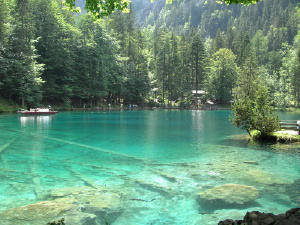

COURTESY : swissinfo
The Buzz word RECESSION has brought down the interest in the MS aspirants for US and instilled a fear in the security of jobs there . Adding to it the US Government is trying to restrict the opportunities available for foreigners as well . Finding a recession proof solution with job security becomes a point of importance now. Wait, !!! we have to discuss about abroad educational opportunities ., not about job and its security fine ., im just going to introduce a Grad school where you get a internationally renowned degree and a wide range of job opportunities . Recession proof ? I can hardly say that , until I know what’s their business and their orientation. But are void of government interventions in opportunities.
Now coming back to the point , the location is well known and they hit the news recently in search of God Particles . Yes you got it right, it’s the Swiss and they are technologically far ahead, considering the 27km intellectual property!!!
 The Grad school of our choice is THE ECOLE POLYTECHNIQUE FEDERALE DE LAUSANNE.
The Grad school of our choice is THE ECOLE POLYTECHNIQUE FEDERALE DE LAUSANNE.The currency used here is Swiss Francs. 1 Swiss Franc is approximately equal to 46 INR as of today. Founded in 1853 as a private school under the name École Spéciale de Lausanne, it became the technical department of the public Académie de Lausanne in 1869.

In 1946, it was renamed the École Polytechnique de l'Université de Lausanne (EPUL). In 1969, the EPUL was separated from the rest of the University of Lausanne and became a federal institute, known as the École Polytechnique Fédérale de Lausanne (EPFL) or Federal Institute of Technology, Lausanne. The EPFL is part of the Swiss Federal Institutes, together with its "sister" institute in Zurich, which are funded by the central government. Most Swiss universities are generally funded by the cantons. Lausanne's Federal Institute of Technology is the study, research and workplace of some 10,000 students, staff and professors from 107 countries.
About 245 professors teach mainly basic sciences (mathematics, physics and chemistry), engineering sciences and techniques, architecture, civil and environmental engineering, computer and communication sciences, life sciences, sociology and humanities.
The EPFL came second behind Cambridge University in Shanghai Jiao Tong University's 2007 ranking as best European study centres for engineering, technologies and computer sciences.
This Grad school like many other US grad school has research tie-ups with many prestigious companies. More recently Nokia – EPFL had a research tie-up for a new high-tech research centre. The Mobile phone giant Nokia and the federal institutes of technology in Lausanne and Zurich inaugurated a long-term research programe to "invent the services of the future".
With the arrival of the world's leading mobile phone company, which has programmes with eight universities worldwide including Cambridge University in Britain and the Massachusetts Institute of Technology (MIT) and Stanford University in the United States, the EPFL is truly entering the world's premier league.
Some quotes on that are
"We are trying to provide the right environment for companies to take advantage of the scientists and researchers based here" EPFL president Patrick Aebischer
“Nokia sees the fusing of the digital and physical worlds as a key objective in mobility. We have chosen to work with the Swiss institutes of technology because of their expertise in this area” said Dr Bob Iannucci, Nokia’s chief technology officer
The Swiss business magazine Bilan, which has an exclusive report on Nokia's involvement, said EPFL is planning to attract even more companies to an area of 42,000 square metres earmarked for new research laboratories.
Ok lets see why Nokia got attracted at EPFL The EPFL already pilots a national project called MICS (Mobile Information and Communication Systems), which specialises in network research. The department, led by professor Karl Aberer, looks at how objects in our every day lives communicate with each other and with a virtual network (a concept known as the ‘Internet of things’). And now Nokia will base its research at its new laboratory in Lausanne around how humans interact with technology, and this would involve using the "human senses".
The other companies to have research deal with the EPFL are Rolex, Nestlé, Logitech, Merck-Serono and La Poste. The accord is part of the institute's new industrial strategy adopted last year and its transformation into a global research centre.

EPFL is planning to align itself with top notch universities, like MIT or Stanford where at the campus, you see people from Microsoft, Yahoo and Google , resulting in setting up of industrial research centers from renowned companies
The EPFL traditionally has a strong commitment to technology transfer. A start-up incubator, coaching services, study programmes in entrepreneurship and innovation programmes aim to stimulate links between the labs and businesses. The science park on campus is currently home to more than 100 small firms and investors.
INNOVATION QUATER
The next stage of the EPFL's business strategy involves the creation of an "innovation quarter", comprising ten ten-story buildings financed by private industry to be rented as laboratories on campus.
Three buildings have so far been completed and the institute is confident that it will fill the rest of the 42,800 square metres of floor space.
The institute was also in discussions with numerous companies from different sectors, including Thomson, Microsoft and Yahoo, which plans to move its European headquarters to Rolle, between Lausanne and Geneva.
The "innovation quarter" will be situated close to the new futuristic Learning Centre library and study area, a vast undulating open space, intended to become the heart of the campus and scheduled to be ready by the end of 2009.
Accommodation for 1,000 students, a congress centre, a hotel and shops and restaurants are also planned. In all, the EPFL and its partners are investing some SFr500 million ($482 million) by 2010 to develop the campus.
What EPFL has to do with Indian students?
INDO SWISS JOINT RESEARCH PROGRAMME (ISJRP): ISJRP is a bilateral research programme financed jointly by the Swiss and Indian Governments. The programme provides funds for research projects and scientific exchanges. EPFL, the Leading House for India, with the University of Lausanne as its partner, is responsible for all operational aspects of ISJRP in Switzerland.
STUDENT EXCHANGE PROGRAMME WITH IITs AND IISc: The EPFL-IIT/IISc Exchange Programme allows EPFL students to enroll for one term or for a full academic year at one of the seven Indian Institutes of Technology (IIT) or at the Indian Institute of Science (IISc). In return, Indian students admitted at these institutes are eligible to be exchange students at EPFL. Allows EPFL and IIT students to benefit from scholarships and fee-waivers
INTERNSHIPS FOR INDIAN STUDENTS: EPFL's world-class laboratories offer diverse internship opportunities for Indian students. Internship placements are coordinated through a specific website platform providing detailed information on admission procedures and facilitating the matching of students' background and interests with the requirements of the labs looking for student assistance.
INDO SWISS COLLABORATION IN BIOTECHNOLOGY (ISCB): ISCB is a joint initiative of the Swiss Agency for Development & Cooperation (SDC) and the Indian Department for Biotechnology (DBT). The programme promotes research partnerships between Swiss and Indian scientists focusing on agricultural and environmental research.
EPFL-IIT MADRAS POSTGRADUATION COURSES: EPFL and the Indian Institute of Technology (IIT) Madras jointly established a sixteen-week post-graduate course on "Technology and Sustainable Development" which is being held on a regular basis
INDO SWISS BILATERAL RESEARCH INITIATIVE (ISBRI): ISBRI seeks to enhance the number and scope of collaborations between Swiss and Indian scientists by providing seed money for short-term visits and the exchange of students.
Some general Info
*** GRE and TOFEL scores are not mandatory.
SCHOLARSHIP
EPFL excellence scholarships, Swiss Government scholarships are available for foreign students
COST OF STUDIES
Tuition fees for all masters programmes is 633 Swiss Francs per semester. One-time registration fee is 110 Swiss Francs, for holders of a foreign Bachelor only. Cost of living in Switzerland is approx. 10.,000 Swiss Francs per semester
ACCOMODATION
For a place near metro the charge of a room (Sharing / 2) will cost a rent of CHF 450 including all charges + Internet
Other private accommodation is www.kobo.ch/ada-logements
PART TIME JOB
You can find one on www.jobs.ch, www.jobscout24.ch, www.monster.ch.
PLACES OF INTEREST
The places of interest , other than libraries, study room, labs are
Lucerne -u can go to mount pilatus from there., which is a great peak.- Sion
- Chateau Chillon near Villenueve
- Geneva
- Interlaken- there is not much to see in interlaken as such but many peaks can be accessed from here
- Lauterbrunnen - has a glacier waterfall


COURTESY : swissinfo
 Useful Links
Useful Links 
1 Comments:
Hi ...
this site is ver useful.. continue updating it ..
By Anonymous, At
July 26, 2010 at 3:36 PM
Anonymous, At
July 26, 2010 at 3:36 PM
Post a Comment
Subscribe to Post Comments [Atom]
<< Home